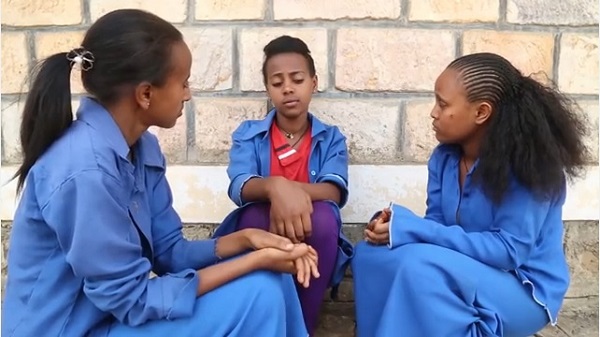
ADDIS ABABA (UNICEF Ethiopia)–On the occasion of International Women’s Day, the Government of Canada is pleased to provide CDN$ 14.8 million (US$ 12 million) to UNICEF Ethiopia to improve the reproductive health and nutritional status of adolescent girls. The initiative will reach over four million girls in districts with high food insecurity and a high prevalence of child marriage. It will be implemented between 2018 and 2022.
“As part of our feminist approach, Canada is committed to advancing sexual and reproductive health and rights in order to empower women and adolescent girls in Ethiopia and around the world,” says Ivan Roberts, Head of Cooperation at the Embassy of Canada in Ethiopia.
In Ethiopia, 25 per cent of the population is made up of adolescents (aged 10 to 19 years), of which 11 million are girls. Adolescent girls experience numerous barriers that hinder them from fully realizing their potential. A significant portion of these barriers is related to their sexual and reproductive health and to their nutrition.
Canada’s contribution will help girls access adolescent-friendly sexual and reproductive health services and nutrition facilities by training health workers to clearly understand the physiological and psychological needs of adolescent girls. This initiative will also leverage gender clubs in schools to provide life skills and sexual and reproductive health knowledge to young people. In addition, adolescent-friendly spaces will be created to ensure out-of-school children freely discuss nutrition and sexual and reproductive health issues and practices including family planning.
ALSO: Update on Yale’s Primary Health Care Transformation Initiative in Ethiopia
To improve personal hygiene, the program will support the local production and supply of sanitary pads, education of girls on pre- and post-menstruation, improve sanitary facilities through upgrading and rehabilitation, provide spaces in schools for menstruating girls to rest, enhance counseling and peer-to-peer support, and promote informal discussions among girls on issues that concern them.
“We appreciate the timely support from the Government of Canada which will allow us to address the challenges that Ethiopian adolescent girls face today,” says Gillian Mellsop, UNICEF Representative in Ethiopia. “We believe that this contribution will help adolescent girls break out of discriminatory social and gender norms that hamper their education and hinder their ability to meaningfully contribute to their nation’s development.”
UNICEF will use its strong monitoring and evaluation tools to ensure the success of this program and invest in regular compilation of health and nutrition data to better understand trends and uptake of services by adolescent girls.
Source: UNICEF Ethiopia
